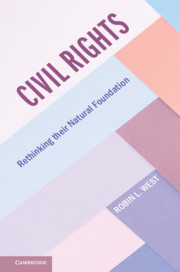1 - The Antidiscrimination Principle and Its Discontents
Published online by Cambridge University Press: 11 July 2019
Summary
Central to all phases of our mid-to-late twentieth and early twenty-first centuries civil rights laws and their subsequent judicial and academic interpretations, is a core commitment, now deeply embedded in American law and life: the eradication of all racially discriminatory decision-making, in both public and commercial spheres. Decision-making, to put the point affirmatively, by state and federal legislators, major employers, educators, hoteliers, restaurant owners, landlords, property sellers, and their agents, along with a host of others, must be nondiscriminatory, for it to be legal, according to what then-Dean Paul Brest, writing in 1976 in the Harvard Law Review, called the “antidiscrimination principle” at the heart of both the Fourteenth Amendment’s Equal Protection Clause and the various Civil Rights Acts of the 1960s.1 By “nondiscriminatory,” Brest explained, is meant that decisions by either lawmakers or powerful private actors, such as employers or property conveyors and their agents, cannot be made on the basis of categories defined by race, and by virtue of legislative extension, by sex, ethnicity, national origin, or religious affiliation either.
- Type
- Chapter
- Information
- Civil RightsRethinking their Natural Foundation, pp. 30 - 91Publisher: Cambridge University PressPrint publication year: 2019
- 1
- Cited by



